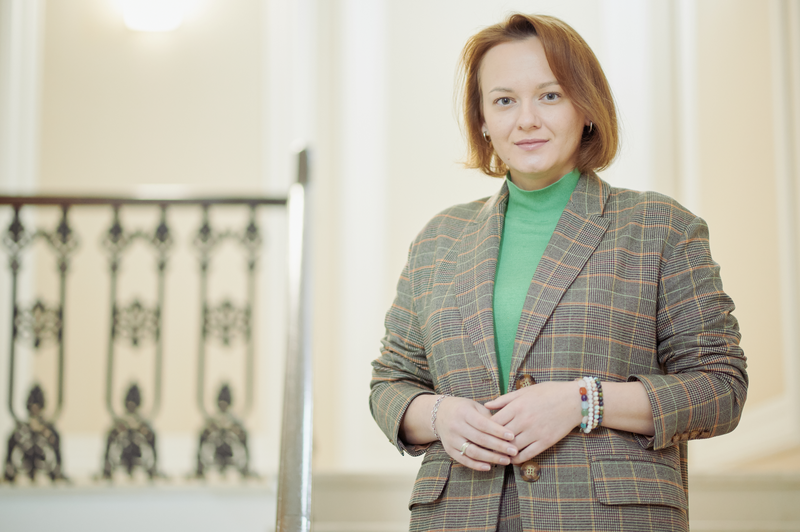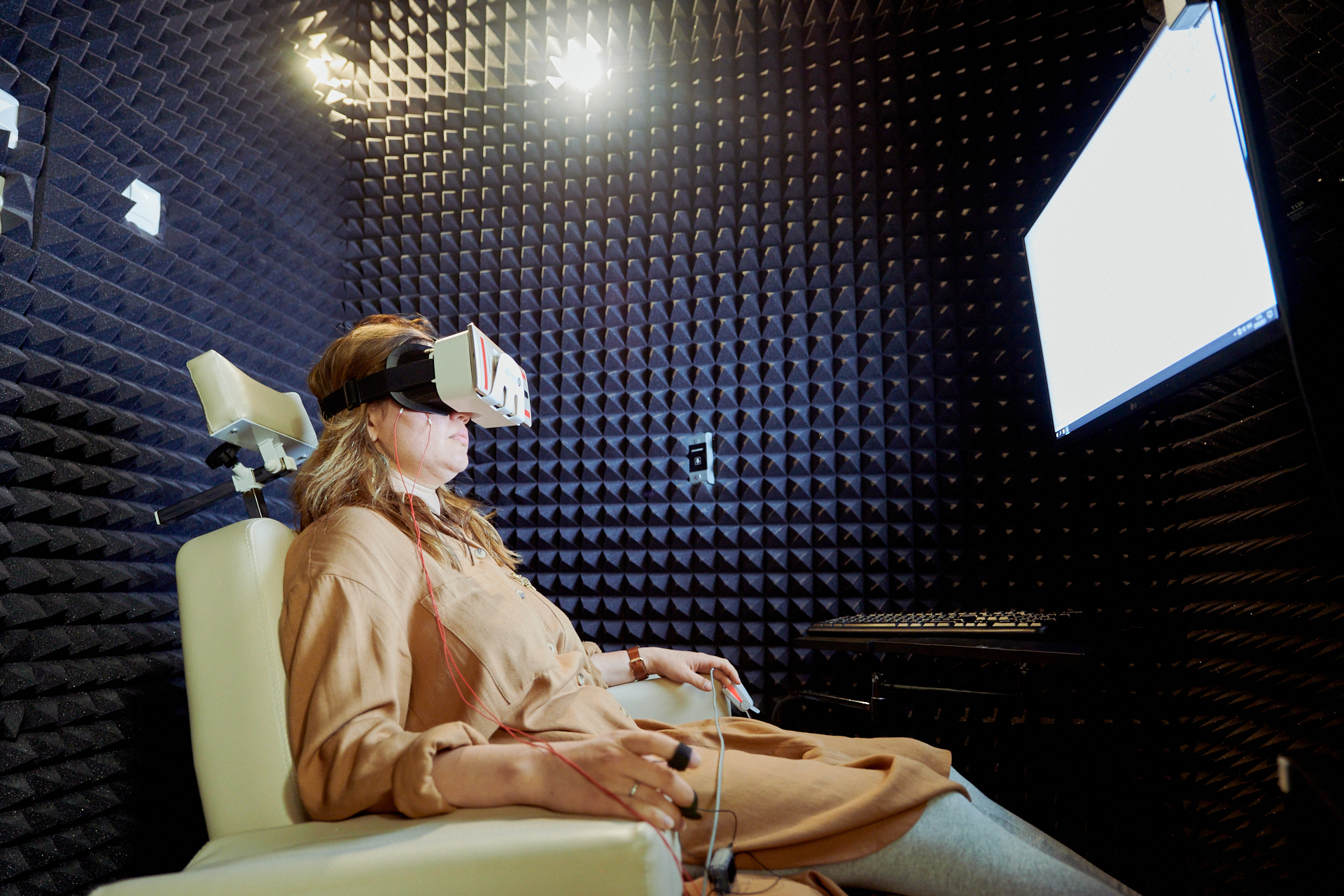Strategic Projects: Producing Scientific Results of Public Relevance

About a year ago, HSE University was among the first group of Russian universities to receive a grant from the ‘Priority 2030’ Strategic Academic Leadership Programme and began implementing strategic research projects. HSE University recently defended its report before the programme's board. Elena Odoevskaya, HSE University Vice Rector and coordinator of the HSE Development Programme for the Period until 2030 and the ‘Priority 2030’ programme, spoke to the HSE News Service about what has been achieved this year and how the format of strategic projects is changing at the university.
— How and why did strategic projects come about at HSE University?
— As part of the HSE Development Programme for the period until 2030, we have begun to transform our research work into a new format of large interdisciplinary full-cycle projects with economic, social and scientific significance.
— Once the HSE Development Programme was adopted, the university became a participant in the ‘Priority 2030’ Strategic Academic Leadership Programme. Was the result a collaboration between the two programmes?
— Yes, together they form part of our integrated development programme. The goal of ‘Priority 2030’ is to form a broad group of leading universities in Russia by 2030—centres of scientific, technological and socioeconomic development for the country. In alignment with the format of the ‘Priority 2030’ programme, we have formed five strategic projects that focus on people and their needs in a changing world: ‘Human Success and Autonomy in a Changing World’, ‘Social Policy for Sustainable Development and Inclusive Economic Growth’, ‘National Centre for Science, Technology and Socio-Economic Forecasting’, ‘Digital Transformation: Technologies, Effects, Efficiency’ and ‘Evidence-based Urbanism’.
— The university team recently presented the results of the ‘Priority 2030’ programme at a defence before the programme’s board. What was the focus of the defence?
— In presenting this year's results, we have focused on the specific effects for society, the economy and ultimately for each individual that have been achieved and that can be achieved as a result of the work of our researchers. Despite the first year being just a start-up period, we already have a number of interesting developments based on the groundwork available at HSE University.
Here are just a few examples: in the ‘Human Success and Autonomy in a Changing World’ strategic project, several projects in the next one to two years of implementation will be taken to the TRL 6-8 level (full-featured demos and prototypes working in real conditions, ready for subsequent scaling/production). These are tools to increase human resilience to the perception of fakes and deep fakes, as well as tools to assess the characteristics of human autonomy, and supra-professional skills.
HSE University in the ‘Priority 2030’ programme in 2021–2022
28 base chairs of Russian Academy of Sciences (RAS) institutions
30 mirror laboratories in partnership with regional universities
528 employees of Russian universities awarded internships at HSE University
200+ research and analysis projects commissioned by regional governments and businesses
15,000 network students and 43 universities
11 intellectual competitions involving 155,000 schoolchildren
496 partner schools
In 2022 the strategic project team at the ‘National Centre for Scientific, Technological and Socio-Economic Forecasting’ presented scenario analyses of socio-economic development, climate change, science and technology development based on big data analysis using the unique iFORA system.
Next year we aim to present an open database on sanctions, which will be constantly updated. Our colleagues have done a tremendous job in terms of systematising all the knowledge regarding the restrictive measures that have been imposed, as well as when and how they were intensified, right down to politicians' public statements on social media regarding the sanctions. This is an extremely useful tool for researchers, government representatives and the public.
The strategic project ‘Digital Transformation: Technologies, Effects, Efficiency’ provides an empirical basis for assessing the social effects of digital transformation and trends in the development of artificial intelligence.
Our insights into how technology is used by society and companies forms the basis of proposals for measures to support the IT industry.
A very promising area of this project is research into 6G networks.
— How are things with the ‘Evidence-based Urbanism’ strategic project?
— A year into the project, it has been shown that it is at a high level of readiness in terms of bringing technology to the market. Some of it has already been implemented in the work of city administrations. For example, the project has developed original transport modelling software, which is superior to foreign analogues in terms of functionality. Given the high degree of development of Evidence-based Urbanism, it was decided that this area will be further implemented as part of the University's research policy, but not as a strategic project; its team will continue to implement projects commissioned by industrial partners and government authorities.

— Will a new strategic project be created?
— Yes, we invited the programme board to support the strategic project ‘The Resilient Brain: Neurocognitive Technologies for Adaptation, Learning, Development and Rehabilitation in a Changing Environment’. The project will contribute to combating neurodegenerative diseases and mental disorders, addressing disability, and promoting active longevity. The project is expected to bring new products to the market quickly, for example in the field of personalised neuroprosthetics. It is worth mentioning that HSE University started developing the field of cognitive science quite a while ago.
Now, in 2022, there is not just a research unit within the university, but a globally competitive neuroscience research cluster.
Our colleagues are developing unique technologies; they have a substantial number of partnerships with medical organisations. We expect that specific technologies will be brought to market in the next two or three years of the project.
— Is the practice-oriented approach, involving external partners, one of the characteristics of the strategic projects?
— This is a conscious policy, because our task is to make sure that our research is full-cycle research—from the formulation of a hypothesis to a specific technology, prototype, or know-how. It is necessary for research to have a customer or consumer: an industrial partner, a specific company. In some cases, it’s HSE University itself, such as when we are talking about filling our educational products; or our founder, the Russian government, if we are talking about scenarios for the development of a particular industry. They can also be ordinary people for whom specific products are created. So our task is to provide a tool, a methodology, a development that will live on without us.
HSE Strategic Projects Today
60+ research projects
40+ faculties, labs, and centres
650 researchers
55% researchers aged 39 or younger
13 consortiums with other universities
— Are there any outside partner universities of the strategic projects?
— We have about 13 consortiums. For instance, one of our strategic projects has a consortium with Sechenov University—a leader in training for the healthcare and pharmaceutical industries—on foresight research in the field of drag design. The number of such consortia will continue to grow in future.
— Apart from the new ‘Resilient Brain’ strategic project, are there any other changes planned for HSE University's participation in ‘Priority 2030’?
—Like all higher education institutions, we need to rethink our international activities. To achieve this, we have decided to incorporate a new policy on the ‘Decolonisation of International Education: Expanding Spaces of Friendship and Mutual Trust’. We have already started creating an educational and research cluster in Eurasian integration, Oriental Studies and African Studies to win the battle for international talent. In doing so, HSE University will share its experience in international communication with other universities.

This year, as you know, we were also faced with the withdrawal of global educational platforms, such as Coursera, from cooperation with Russian universities. This is a serious challenge because, for example, HSE University had a base of around two million participants in our courses there, and this was effectively cancelled. But we supported all those who studied with us, for example, in the online master's programme: they are now studying on our internal Smart LMS platform.
The ‘Priority 2030’ Strategic Academic Leadership Programme has been implemented since May 2021. It is planned that the programme will concentrate resources to ensure the contribution of Russian universities in achieving the national development goals of the Russian Federation until 2030, increase the scientific and educational potential of universities and research organisations, and ensure the participation of institutions of higher education in the socio-economic development of the constituent entities of the Russian Federation. The goal of ‘Priority 2030’ is to create more than 100 progressive modern universities in Russia by 2030—centres of scientific and technological and socio-economic development for the country. HSE University, together with eight other universities, is included in the first group of the programme under the ‘Research Leadership’ track.
See also:
First Digital Adult Reading Test Available on RuStore
HSE University's Centre for Language and Brain has developed the first standardised tool for assessing Russian reading skills in adults—the LexiMetr-A test. The test is now available digitally on the RuStore platform. This application allows for a quick and effective diagnosis of reading disorders, including dyslexia, in people aged 18 and older.
HSE Scientists Explain How to Identify Brain Areas Critical for Language Function During Surgery
The HSE Centre for Language and Brain conducted a course on tractography, a method that enables visualisation of key brain connections and helps surgeons avoid damaging language-critical areas during surgery. The course was attended by neurosurgeons and radiologists from Moscow and other Russian regions who are interested in methods of preoperative language mapping.
Forbes University Ranking: HSE Has Top Reputation among Employers
On May 22, Forbes Education released its updated ranking of the 100 best universities in Russia for 2025. HSE University retained its second-place position, having established itself as the university with the highest employer reputation. Among the top 20 were 12 universities from Moscow, three from St Petersburg, two from Tatarstan, and one each from the Sverdlovsk, Novosibirsk, and Tomsk regions.
HSE and Sichuan University Sign Cooperation Agreement
On May 20, 2025, HSE University hosted an official delegation from Sichuan University headed by President Wang Jinsong. During the meeting, the universities signed a cooperation agreement.
Interactive Workshops, Thematic Quizzes, and New Partnerships: HSE Delegation Visits Mongolia
Representatives of HSE University visited the Mongolian capital, Ulaanbaatar. The visit focused on developing cooperation in the fields of education and science, as well as introducing Mongolian school pupils and students to the educational opportunities available at one of Russia’s leading universities.
'The Branch of Medicine That Our Developments Primarily Target Is Cardiology'
The application of mathematical models to the diagnosis and treatment of cardiovascular diseases contributes to the effective detection of patient predispositions and supports the selection of best treatment strategies. The use of mathematical models helps create new diagnostic tools and train neural networks to assist clinicians. Researchers from HSE University and colleagues from Saratov State Medical University are engaged in this work as part of the Mirror Laboratories project. In this interview, Natalya Stankevich, Senior Research Fellow at the International Laboratory of Dynamical Systems and Applications of the HSE Campus in Nizhny Novgorod, talks about what the collaboration has achieved so far.
Centre for Language and Brain Begins Cooperation with Academy of Sciences of Sakha Republic
HSE University's Centre for Language and Brain and the Academy of Sciences of the Republic of Sakha (Yakutia) have signed a partnership agreement, opening up new opportunities for research on the region's understudied languages and bilingualism. Thanks to modern methods, such as eye tracking and neuroimaging, scientists will be able to answer questions about how bilingualism works at the brain level.
HSE and Vietnam National University to Establish Joint Research Institute
A cooperation agreement has been signed in Moscow between HSE University and Vietnam National University, Hanoi (VNU). The document was signed during the official visit of a Vietnamese delegation to celebrations marking the 80th anniversary of Victory Day and negotiations involving President of the Russian Federation Vladimir Putin and General Secretary of the Central Committee of the Communist Party of Vietnam Tô Lâm. The agreement was signed by HSE Rector Nikita Anisimov and VNU Rector Le Quan.
HSE and Tsinghua University Strengthen Russia–China Partnership as part of Cross Year of Education
On May 10, a delegation from Tsinghua University—one of China’s leading higher education institutions—paid an official visit to HSE University. The delegation was led by Qiu Yong, Secretary of the CPC Tsinghua University Committee, former President and Chair of the University Council, and member of the Chinese Academy of Sciences.
HSE University Signs Cooperation Agreements with Leading Chinese Universities
On May 8, 2025, in Moscow, in the presence of Russian President Vladimir Putin and Chinese President Xi Jinping, strategic agreements were signed between the HSE University and two of China's top institutions, Peking University and Tsinghua University. The event was attended by Nikita Anisimov, Rector of HSE University, Qiu Yong, Secretary of the CPC Tsinghua University Committee, and Gong Qihuang, President of Peking University. The signing unfolded during the official visit of the Chinese delegation to Russia, coinciding with the commemoration of the 80th Anniversary of Victory Day.


